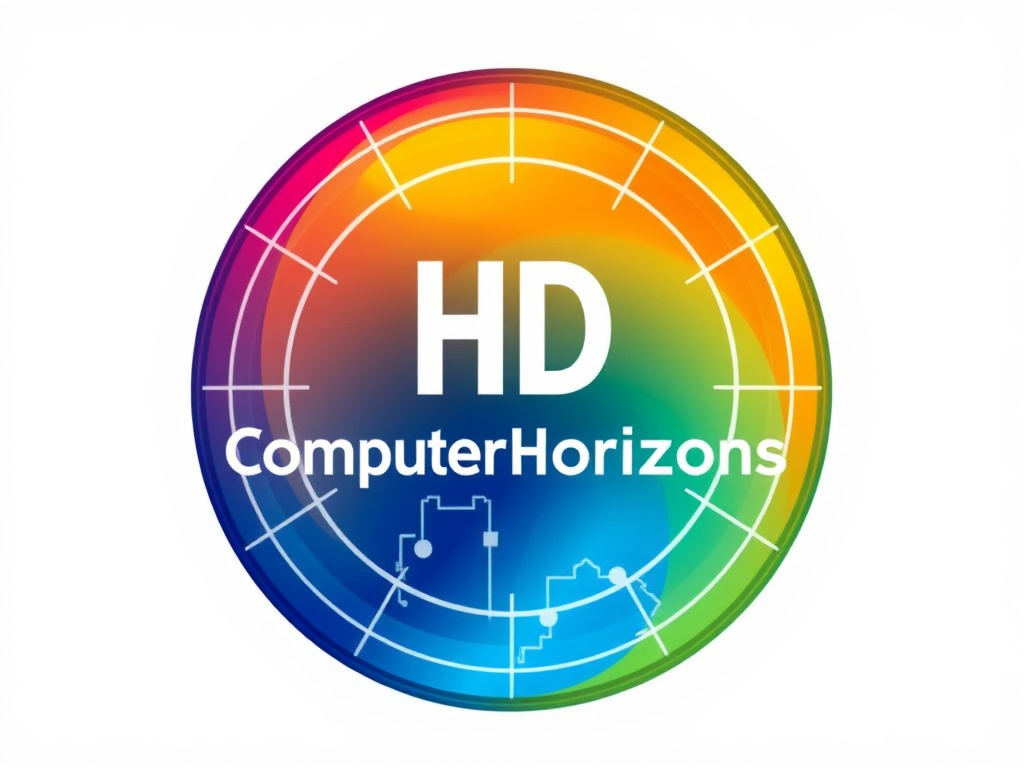Key Innovations in UK Computing Marketing
The landscape of UK computing marketing innovations has transformed profoundly, driven by advancements in technology and shifting consumer expectations. One of the most significant trends is the integration of AI-driven marketing campaigns and automation. Marketers in the computing sector leverage artificial intelligence to optimize campaign performance, automate repetitive tasks, and generate tailored content that resonates with diverse audience segments. This use of AI not only improves efficiency but also enhances engagement rates by delivering more relevant messaging.
Another pivotal innovation is the exponential growth in data analytics and big data utilization. UK computing companies deploy sophisticated analytics tools to process vast datasets, extracting actionable insights that inform strategic decisions. The ability to analyze customer behavior, market trends, and competitive dynamics in real time allows brands to adapt their marketing tactics swiftly, maximizing ROI. Big data fuels more accurate customer segmentation and refines targeting, which are crucial for successful digital campaigns.
Also to see : How can UK marketers implement augmented reality for enhanced customer experiences?
Personalisation and dynamic content strategies stand out as essentials in current marketing practices. Tailoring content to individual preferences increases customer satisfaction and loyalty. Marketing teams use algorithms that adjust content based on browsing habits, purchase history, and other behavioral data. Through personalised experiences, brands create deeper connections with customers, reinforcing brand identity in a crowded marketplace. These innovations collectively showcase how digital transformation in computing reshapes marketing approaches, marking the UK as a leader in adopting cutting-edge marketing technology trends.
Omnichannel and Personalised Customer Experiences
Creating seamless omnichannel computing marketing strategies is a key driver of success in personalised marketing UK. By integrating online and offline channels, UK computing brands deliver cohesive experiences that meet customers wherever they engage. This approach blends websites, mobile apps, social media, physical stores, and call centers into a unified journey, eliminating fragmentation and boosting satisfaction.
In the same genre : How is cloud technology reshaping marketing in the UK?
Customer Relationship Management (CRM) systems play a crucial role in these experiences. Through sophisticated segmentation, marketers tailor outreach based on demographics, behaviours, and preferences, enhancing relevance and engagement. For example, UK computing companies analyze customer data to adjust messaging dynamically, ensuring communication aligns precisely with individual needs. This detailed, data-informed targeting strengthens personalised marketing UK by fostering trust and loyalty.
Leading UK computing brands demonstrate how omnichannel strategies enhance customer experience trends. They employ tools that track interactions across all platforms, allowing for consistent messaging and timely responses. Customers enjoy personalised offers, support, and content whether shopping in-store or online. These practices exemplify how omnichannel computing marketing elevates brand connection and drives growth by prioritising the customer’s holistic journey.
Data-Driven Decision Making and Analytics
Data analytics in marketing form the backbone of strategic decision-making within the UK computing sector. Real-time analytics empower marketers to swiftly interpret customer interactions and campaign performance, enabling dynamic adjustments that enhance outcomes. By continuously monitoring key metrics, UK computing marketing teams gain a competitive edge through responsive, informed strategies.
Predictive analytics, a subset of advanced data analytics in marketing, forecasts customer behaviour by analyzing historical data patterns and trends. This capability allows brands to anticipate needs, personalize offers, and optimize resource allocation efficiently. Such foresight transforms marketing from reactive to proactive, significantly boosting campaign effectiveness.
The big data computing industry in the UK leverages vast datasets to extract marketing insights UK that are both granular and actionable. Sophisticated modeling and machine learning techniques identify correlations and opportunities that traditional methods might overlook. UK computing companies investing in these analytics tools enjoy improved targeting accuracy, deeper customer understanding, and enhanced return on investment, underscoring the pivotal role data-driven approaches play in modern marketing.
Artificial Intelligence and Automation in Marketing
AI in UK marketing is revolutionizing how computing companies design, execute, and optimize their campaigns. Specifically, AI-driven marketing campaigns and automation enhance precision targeting through machine learning algorithms that analyze user data to deliver personalized content. This approach reduces manual workload by automating repetitive tasks such as content generation, email scheduling, and social media management, making marketing operations more efficient.
Marketing automation computing enables businesses to streamline ad management across multiple platforms. For example, UK marketers use AI tools to adjust bids dynamically, schedule advertisements based on audience behavior, and even generate copy variations to test which messages resonate best. This real-time adaptability significantly improves campaign performance, driving engagement and conversions.
Machine learning trends UK suggest an increasing role for AI in predictive analytics, where models forecast customer preferences and behaviors with high accuracy. This predictive capability allows brands to tailor offers proactively, minimizing wastage and maximizing ROI. Industry experts highlight that as AI matures, its integration with marketing technology trends UK will deepen, leading to more sophisticated automation and content personalization within the digital transformation in computing. The future promises marketing strategies that are more responsive and customer-centric, powered by continuous learning algorithms and seamless automation.
Key Innovations in UK Computing Marketing
UK computing marketing innovations continue to evolve rapidly, driven by the convergence of AI, data analytics, and personalisation. Central to this evolution are AI-driven marketing campaigns and automation, which enable UK computing companies to streamline operations and increase precision targeting. These innovations harness machine learning algorithms to interpret vast datasets, delivering dynamic content tailored to individual users and reducing manual intervention in campaign management.
Alongside AI, the growth of data analytics and big data utilisation plays a crucial role. By leveraging extensive data sources, marketers extract detailed insights into consumer behavior, preferences, and emerging market trends. This capability supports more informed and agile decision-making, ensuring marketing efforts align closely with audience needs. The integration of big data analytics within marketing strategies exemplifies the digital transformation in computing, where data becomes the foundation for creating competitive advantages and driving ROI.
Personalisation and dynamic content strategies also stand out as vital components. By adapting messaging and offers based on real-time data, UK computing marketers elevate customer engagement and loyalty. These techniques exploit data-driven profiles to ensure marketing communications resonate uniquely with each individual, reflecting broader marketing technology trends UK focused on enhancing user experience. Together, these innovations underscore a shift toward responsive, technology-enabled marketing that places customer relevance and operational efficiency at the forefront.
Digital Transformation and New Media Adoption
Digital transformation UK computing initiatives have catalyzed a fundamental shift from traditional to digital-first marketing approaches. Companies now prioritize integrating emerging new media marketing channels—including social media platforms, video streaming, podcasts, and influencer collaborations—into their marketing mix. This adoption enables UK computing marketers to connect with audiences more interactively and responsively than traditional methods allowed.
Technology adoption trends show a strong preference for harnessing platforms that support real-time engagement and user-generated content. For example, UK computing brands increasingly leverage live streaming and short-form content to enhance storytelling and showcase product innovations. These channels boost consumer engagement by fostering direct interaction and community building, essential factors in the evolving digital landscape.
This shift also influences brand loyalty, as interactive media allows brands to maintain ongoing conversations with customers, addressing feedback and creating personalized experiences. The adoption of new media within the digital transformation in computing not only diversifies marketing touchpoints but also enhances the agility of campaigns, enabling rapid adjustment to market signals. Overall, embracing new media marketing forms a cornerstone of marketing technology trends UK and underpins the sector’s ability to meet modern consumer expectations.
Key Innovations in UK Computing Marketing
The forefront of UK computing marketing innovations is marked by a synergy of AI-driven marketing campaigns and automation, the extensive growth of data analytics and big data utilisation, and sophisticated personalisation and dynamic content strategies. These advancements collectively define the current marketing technology trends UK is embracing amidst the ongoing digital transformation in computing.
AI-driven campaigns leverage machine learning to analyze large datasets, enabling precise targeting that adapts in real time. Automation reduces manual effort by handling tasks such as content creation, email dispatch, and bid adjustments across platforms. This combination enhances efficiency while delivering highly relevant messaging tailored to distinct audience segments.
Simultaneously, the expansion of data analytics equips UK computing marketers with actionable insights derived from vast and varied information sources. By applying big data techniques, companies decode customer preferences and emerging market shifts, informing strategic decisions with granular accuracy. These insights allow the adjustment of tactics dynamically, fueling more responsive campaigns aligned with consumer needs.
Personalisation advances further by implementing dynamic content strategies. Algorithms modify messaging based on live data such as browsing behavior, purchase history, and demographic factors. This depth of customization fosters greater customer engagement, strengthens brand loyalty, and differentiates brands in an intensely competitive market.
Together, these innovations underscore a profound shift toward data-centric and AI-enabled marketing architectures. As the digital transformation in computing deepens, UK companies increasingly prioritize integrated, intelligent systems to enhance marketing outcomes and maintain leadership in global technology markets.

